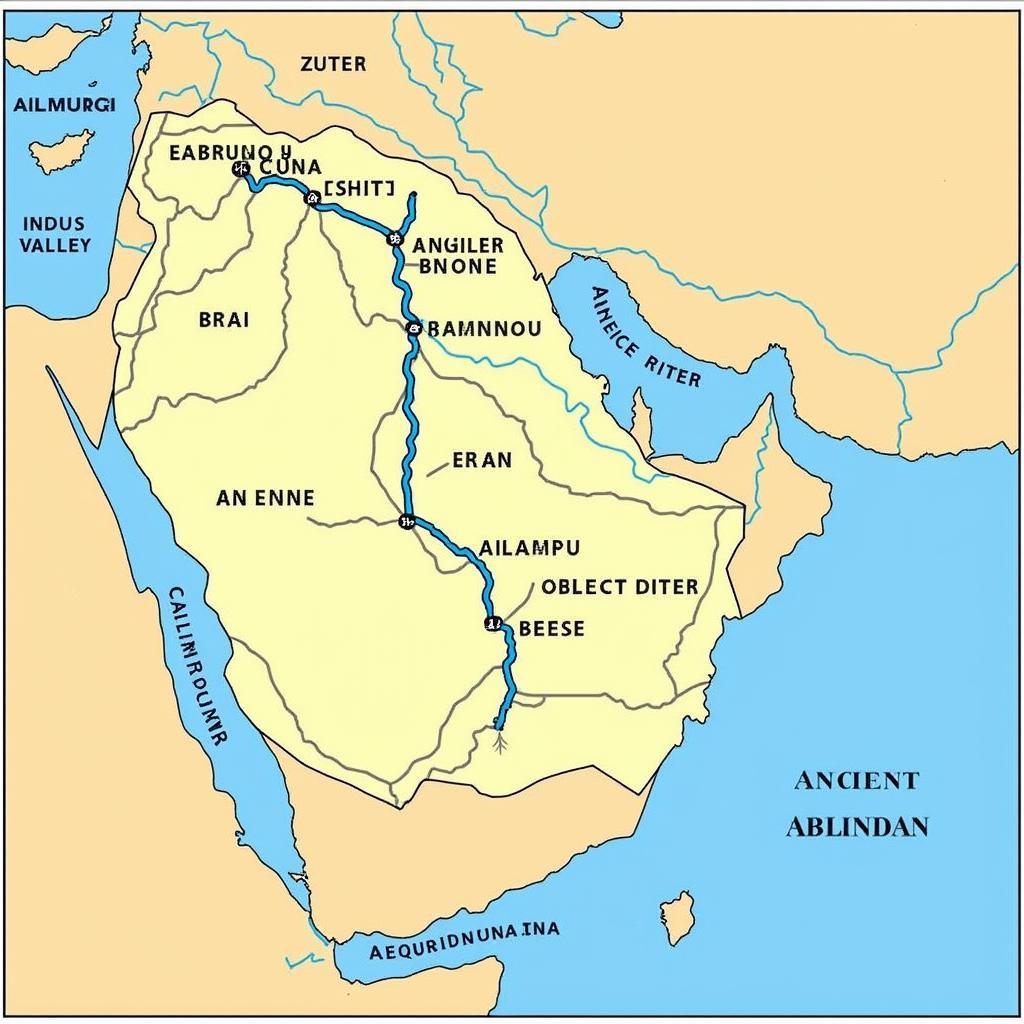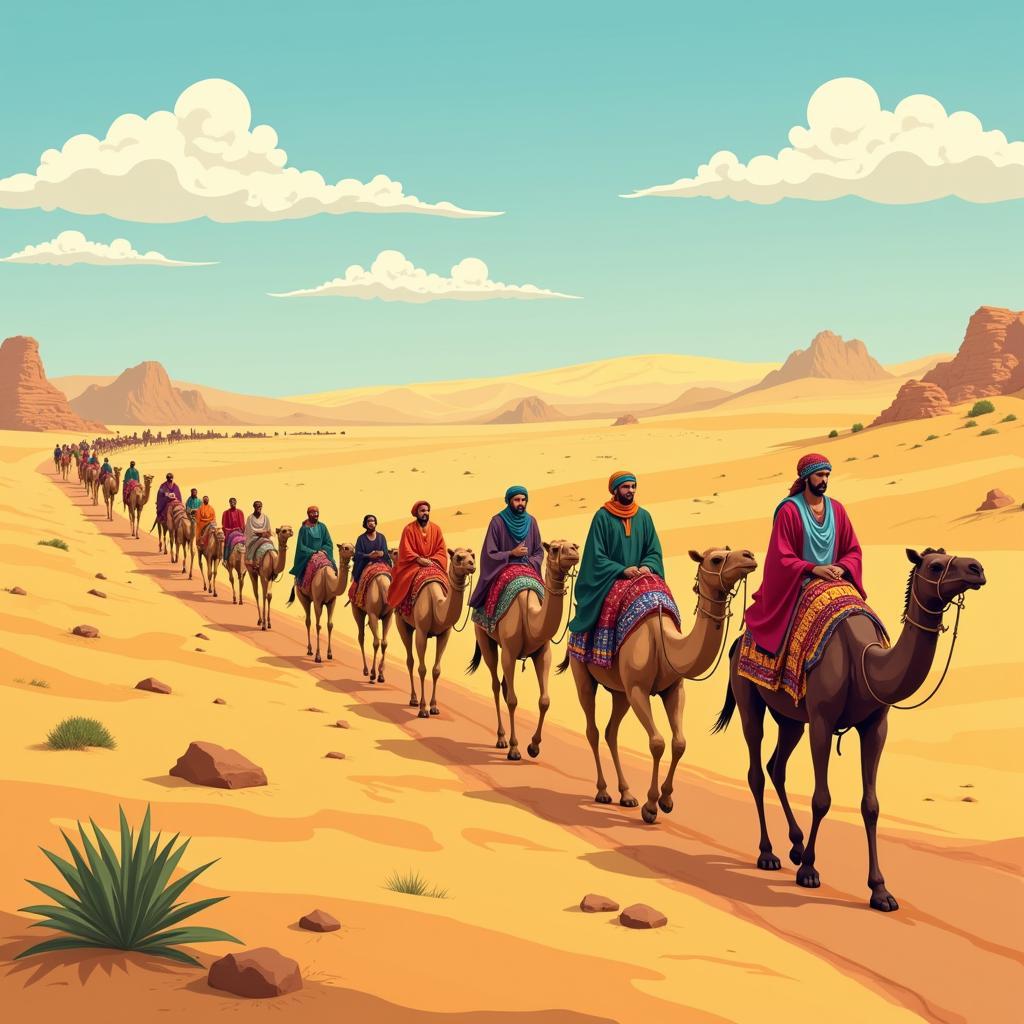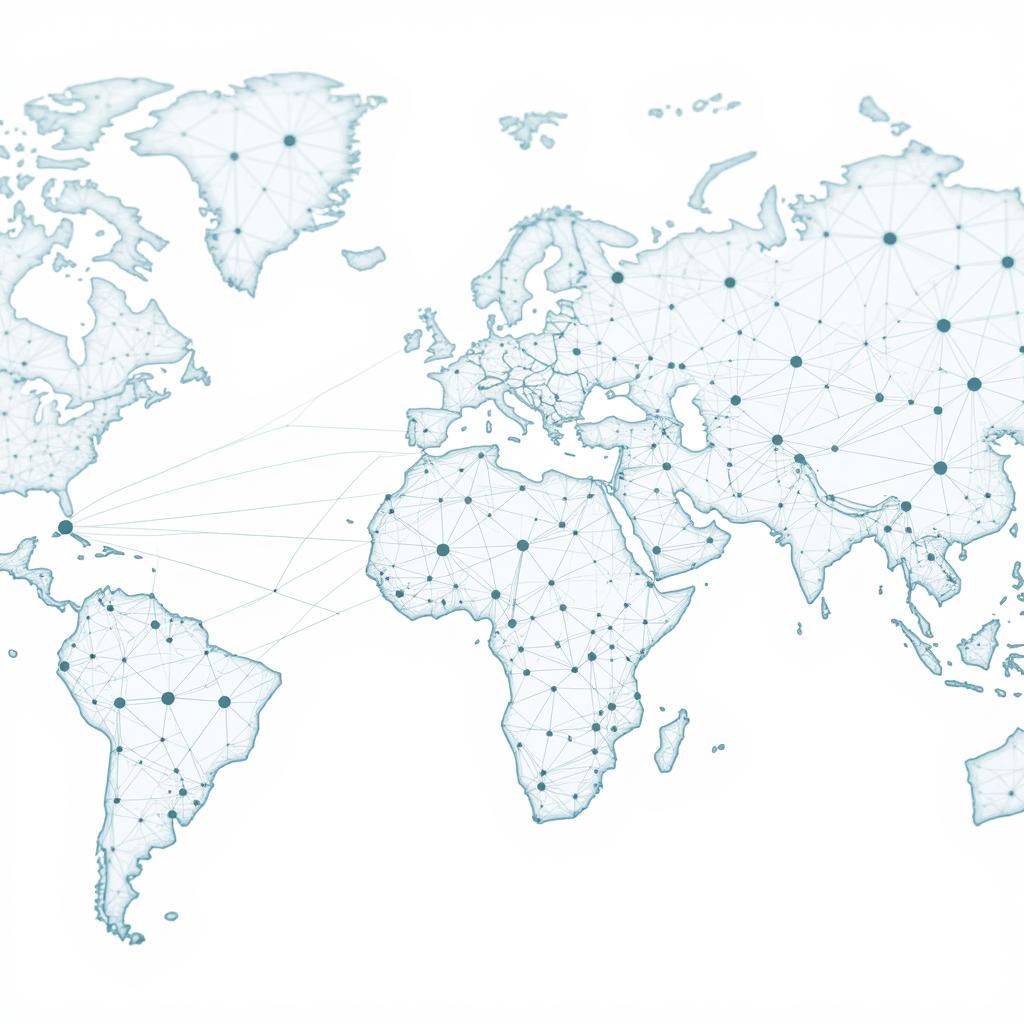From the earliest hunter-gatherer groups to the complex globalized world we live in today, the History Of World Societies is a tapestry woven from countless threads. It’s a story of innovation and conflict, of collaboration and competition, of empires rising and falling. To truly understand who we are today, we must embark on a journey to explore this rich and complex past.
Early Civilizations: The Seeds of Society
Our journey begins with the dawn of agriculture, a development that forever altered the course of human history. Around 10,000 BCE, in various corners of the globe, humans transitioned from nomadic hunter-gatherer lifestyles to settled agriculture. This shift led to the emergence of the first civilizations in Mesopotamia, Egypt, the Indus Valley, and China. These societies developed complex social structures, forms of writing, and monumental architecture, laying the foundation for the development of world societies.
 Map of Ancient Civilizations
Map of Ancient Civilizations
Empires and Trade: Connecting Worlds
As centuries passed, these early civilizations expanded, interacted, and sometimes clashed. Powerful empires emerged, driven by ambitions of conquest, wealth, and cultural diffusion. From the Roman Empire to the Han Dynasty, these powerful entities fostered trade networks that spanned continents, connecting distant societies and facilitating the exchange of ideas, goods, and technologies. The Silk Road, for instance, served as a vital artery for trade and cultural exchange between East and West, shaping the identities of societies along its route.
 Silk Road Trade Caravan
Silk Road Trade Caravan
The Rise of New Ideas: Revolution and Transformation
The history of world societies is not a linear progression; it’s punctuated by periods of profound change and upheaval. The Renaissance, with its emphasis on humanism and classical learning, marked a turning point in European history, paving the way for the Scientific Revolution and the Enlightenment. These intellectual movements challenged established hierarchies, promoted reason and individual liberty, and ultimately led to revolutions that reshaped the political and social landscape of the Western world.
The Modern World: Global Challenges and Interconnectedness
The 19th and 20th centuries witnessed unprecedented technological advancements, leading to increased globalization and interconnectedness. However, this era was also marked by intense conflict, from the two World Wars to the Cold War, highlighting the challenges of navigating a world with diverse ideologies and aspirations.
 Global Interconnections in the Modern World
Global Interconnections in the Modern World
Looking Ahead: Shaping a Peaceful and Sustainable Future
As we stand at the cusp of a new era, understanding the history of world societies is more crucial than ever. The challenges we face—climate change, social inequality, political polarization—transcend national boundaries. By learning from the successes and failures of the past, by embracing dialogue and understanding, we can work towards a future where peace and cooperation prevail.
FAQs about the History of World Societies
-
What is meant by “world societies”?
- This term refers to the diverse range of human communities that have existed throughout history and across the globe, each with its own unique culture, values, and ways of life.
-
Why is it important to study the history of world societies?
- Studying the past provides valuable insights into the present, helps us understand the roots of current global issues, and allows us to learn from the experiences of those who came before us.
-
How can I learn more about the history of world societies?
- Exploring resources like books, documentaries, museums, and online platforms dedicated to history can deepen your understanding. For a specific focus on the interplay between individuals and society, you might find our article on examples of man vs society insightful.
-
Are there any online communities dedicated to discussing history?
- Yes, many online forums and groups are dedicated to historical discussions. You can also check out the Austerlitz Historical Society for more localized perspectives.
-
What role do secret societies play in the history of world societies?
- Secret societies have played a complex and multifaceted role throughout history, influencing various aspects of society. To delve into the intricacies of such organizations, you can explore our article on civ secret society.
Exploring Further: The Story Continues
For those seeking a deeper dive into the complexities of world history, our website offers a wealth of resources. You can delve into specific time periods, regions, or themes, such as the fascinating exploration of world societies in a history of world societies volume 2.
Remember, understanding the history of world societies is not just about memorizing dates and events. It’s about recognizing the interconnectedness of humanity, appreciating the richness of our shared past, and using these insights to build a more peaceful and just future.
For support or assistance, please contact our 24/7 hotline at 02043854663, email us at [email protected], or visit us at our headquarters in Zone 34, Bac Giang, 260000, Vietnam.